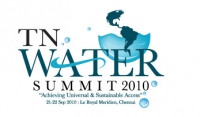/topics/governance
Governance
Call for applications: Grant Opportunities for Citizen Scientists (groups and individuals) in Asia
Posted on 26 Aug, 2010 11:49 AMContent Courtesy: Takagi Fund for Citizen Science

The Takagi Fund for Citizen Science (the Takagi Fund, Tokyo, Japan) will invite grant applications for the year 2011 from groups and individuals in Asia pursuing "Citizen Science". The deadline for submission of applications for this round is 30 September, 2010.
Groundwater externalities of surface irrigation transfers under national river linking project: Polavaram – Vijayawada link
Posted on 25 Aug, 2010 05:00 PMThis document published by IWMI and CGIAR describes the details of the Polavaram project, which has been planned by the state of Andhra Pradesh as a multi-purpose project:
- to provide irrigation benefits to the upland areas
- to provide a water supply to the industries in Visakhapatnam city, including the Steel Plant, for the generation of hydropower
- for the development of navigation and recreation facilities.
The project envisages the construction of an earth-cum-rock filled dam that is 1,600 m long across the Godavari River at Polavaram, and about 42 km upstream of the Godavari Barrage at Dowlaiswaram.
Water quality status of historical Gundolav lake - Kishangarh - South Asian Journal of Tourism and Heritage
Posted on 25 Aug, 2010 09:44 AMThis paper published in the South Asian Journal of Tourism and Heritage describes the water quality status of Gundolav Lake in Rajasthan, which was once used for drinking water as well as for recreational activities under the tutelage of the princely state of Kishangarh. This has now become a site of wastewater disposal and facing a critical threat for its sustenance.
Recent years have led to an increasing awareness of the importance of water bodies and the need for conservation of water bodies, especially freshwater wetlands. The Ramsar Convention (2002) identifies wetlands as the starting point for integrated water management strategies. This is because they are the source of fresh water, maintain the health of the water course and water bodies, have the capacity to supply water to meet the human needs and are a key to future water security.
The Global Innovation Commons- A Possible Resource
Posted on 25 Aug, 2010 12:36 AMA patent is a contract between an inventor and the public. In order to promote and reward innovation, the contract states that if an idea is (i) novel, (ii) non-obvious, and (iii) reduced to practice, the inventor or innovator, upon registration and full public disclosure of the innovation is thus provided a time limited monopoly to use the idea in commerce for one 20 year term. Under worldw
Participatory Communication and Action – Approaches, tools, processes, media matter, Deolali, Nashik, Maharashtra
Posted on 23 Aug, 2010 10:21 AM
Organizer: Media Matters
Energy supply and the expansion of groundwater irrigation in the Indus-Ganges Basin - A working paper by Challenge Program on Water and Food
Posted on 22 Aug, 2010 08:27 PMThe paper by International Water Management Institute (IWMI), Challenge Programme for Water and Food (CPWF) and University of Arizona deals with energy supply and expansion of groundwater irrigation in the Indus-Ganges basin. Irrigation using groundwater has expanded rapidly in South Asia since the inception of the Green Revolution in the 1970s and it represents the largest source of irrigation in the basin.
Remote sensing and census based assessment and scope for improvement of rice and wheat water productivity in the Indo-Gangetic basin - A working paper by Challenge Program on Water and Food
Posted on 22 Aug, 2010 04:48 PMThis paper by the Challenge Programme for Water and Food (CPWF) presents a simplified approach to combine remote sensing, census and weather data to analyze basin rice and wheat water productivity (WP) in Indo-Gangetic river basin, South Asia. It presents an innovative approach to combine meteorological data, ground survey, national census with remotely sensed imagery to assess water use, yield, and finally crop water productivity for the Indo-Gangetic rice-wheat cropping system in South Asia.
Inviting public opinion on Western Ghats ecology - Ministry of Environment and Forests (Government of India)
Posted on 22 Aug, 2010 01:41 PM
How would we judge ecological sensitivity? Scientists view an ecologically sensitive area as an area whose ecological balance, once disturbed, is very hard to restore. Thus, steep Western slopes of Western Ghats, subject to heavy rains and winds, if deforested, are likely to be quickly stripped of soil cover and for ever lose their pristine vegetation. We do have a scientific understanding of the environmental attributes that render areas more sensitive; we also have insights into processes that have resulted in irreversible ecological damage.
India Water Portal is looking for Content Editors
Posted on 21 Aug, 2010 07:27 PMThe India Water Portal is an open, collaborative, web-based initiative, anchored by Arghyam, for sharing water management knowledge amongst practitioners, experts and the general public. Through its content and services, the portal aims to inspire, catalyse and support water/environment development initiatives on the ground, across the country.
TN Water Summit 2010, CII, Chennai
Posted on 21 Aug, 2010 01:03 PM
Organizer: Confederation of Indian Industry(CII)







